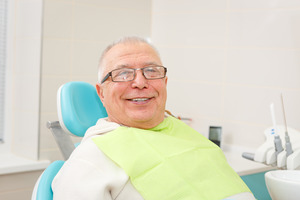
Are you planning on undergoing scaling and root planing in order to treat your gum disease? If so, you should make sure that you’re prepared to protect your mouth after the procedure. Following the right steps for aftercare will help ensure that there aren’t any problems during the recovery process. Below are 6 important dos and don’ts to keep in mind after scaling and root planing.
1. Do Take Over-the-Counter Medication to Manage Your Discomfort
There may be some acute discomfort following the treatment. It should go away on its own in a matter of days. Until then, you can keep your pain under control with acetaminophen or a similar type of over-the-counter medication. If your teeth are unusually sensitive, it can help to use toothpaste with desensitizing properties.
2. Don’t Eat Anything While Your Mouth is Still Numb
Scaling and root planing typically involve the use of a local anesthetic for the sake of your comfort. Once the treatment is complete, your mouth will still be numb for a while. In order to eliminate the risk of biting your tongue without realizing it, your periodontist is likely to recommend that you avoid eating until the numbness is gone.
3. Do Continue to Practice Good Oral Hygiene
You will be able to brush your teeth after scaling and root planing, although you do need to be very careful if you want to avoid irritating your still-recovering gums. Make sure that you use a soft-bristled toothbrush, and be very gentle when cleaning around the area where the treatment in question was performed. It’s usually recommended that you wait at least one day before flossing.
4. Don’t Eat Certain Foods
There are a number of foods that you should stay away from until your mouth has sufficiently healed. In particular, you should not eat anything that is sticky, hard, crunchy, spicy, or acidic. It’s better to eat soft foods that your teeth and gums can easily tolerate, such as scrambled eggs and mashed potatoes.
5. Do Rinse with Salt Water
Rinsing with salt water can help your gums heal faster and make them less tender. Mix a teaspoon of salt with some warm water, then swish it around in your mouth for about 30 seconds. You should do this at least three times a day.
6. Do Not Smoke
Tobacco is one of the absolute last things that you want to expose your mouth to when your gums are trying to heal; it has properties that can slow down the recovery process, and it can increase your risk for infection. You should refrain from using tobacco products of any kind for at least three days following scaling and root planing
About the Author
Dr. David Handsman went to Temple University for his Doctor of Dental Medicine, and he received a Masters of Dental Surgery in periodontology from the University of Tennessee. He’s proud to be able to improve the health of his patients’ gums with scaling and root planing. To schedule a consultation with Dr. Handsman at Handsman & Haddad Periodontics in Worcester, visit his website or call (508) 753-5444.

